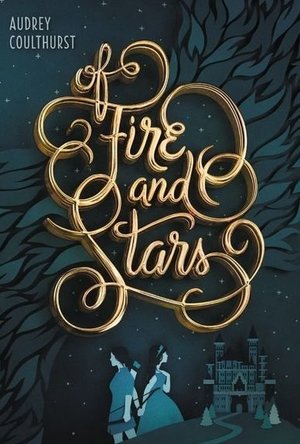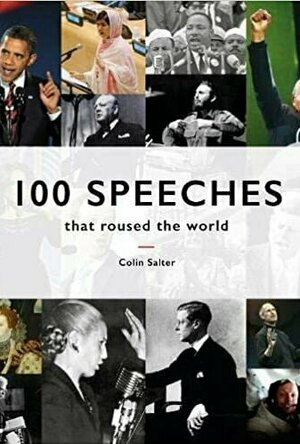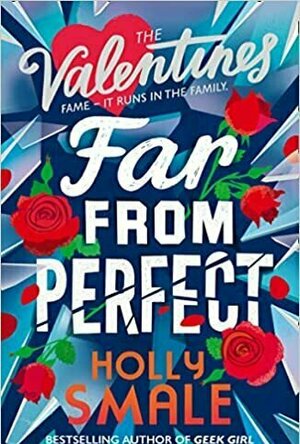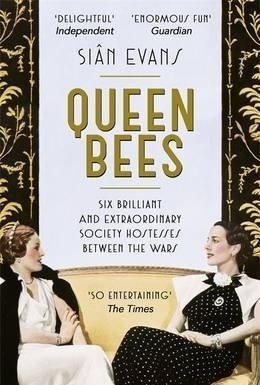Kyera (8 KP) rated Of Fire and Stars (Of Fire and Stars #1) in Books
Feb 1, 2018
Forced to adjust to a life at court, Denna finds herself in riding lessons with Mare in preparation for her wedding. Having never ridden a horse before she is concerned but puts her all into learning, which impresses the recalcitrant Mare. Their interactions and friendship grow over the course of the novel in a believable way, from the initial opinions of dislike to a true, bonded friendship. Although Denna is betrothed, her feelings only grow for Mare until her every thought is of the princess rather than the prince. Mare dismays each time she thinks about her brother marrying Denna, as he doesn't realize her best qualities. Each fears that her feelings are not reciprocated and keep everything bottled up. Whether their tale has a happy ending or not, you won't know unless you read the book. I really enjoyed the relationships and interactions in this book, particularly a romance that is more diverse than we normally get to see.
The world-building could have been better in this novel, but it is not non-existent. There are a variety of different lands and people mentioned, unfortunately, we only receive the barest of information. Even though one of our main characters is from another land, we learn about little more than their harsh winters. The magic system and other lands like Zumorda were so fascinating, but not explored. While some of this can be explained by the fact that our characters also seem to be ill-informed about their neighbors, we don't receive much more information about Mynaria and that's where this book takes place.
I found the main characters to be relatable but didn't connect deeply with some of the secondary ones. That was disappointing because it meant when there was an emotional scene or death, as a reader you weren't torn apart by it. To be honest, I didn't have opinions or feelings about it at all and I wish that were not the case. I love when books sweep you up, heart and soul, making you a part of the story and tearing out your emotions with every line.
Magic is feared and punished in Mynaria, so we sadly don't get to experience much of it. When we see experienced practitioners perform, it is fascinating and varied. Someone with an air affinity might be able to create a breeze but they also may be able to transform into a bird. I wish this magic system was more developed and/or explained more because I just want to know more.
Overall, I enjoyed this book and would recommend it to young adult/teen readers who enjoy magic, fantasy, romance, or more diverse books.
Darren (1599 KP) rated The King (2019) in Movies
Nov 27, 2019
As Hal find himself in a new power, he doesn’t know who to trust, so he turns to Falstaff (Edgerton) to help him in battle, with in latest battle being with the future French king The Dauphin (Pattinson).
Thoughts on The King
Characters – Hal is the young prince that would become King, a role he isn’t ready for, he doesn’t want to see large scale bloodshed like his father’s reign, but finds his country in war from all sides, he wants to end the battles and will look for solutions, which don’t always work for him. Falstaff is the man Hal turns to for advice when it comes to conflict, he thought under King Richard and he knows how to outsmart an enemy, first he must give up his drinking problem though. The Dauphin is next in line to be king of France, he is leading the armies into battle and doesn’t want any part of a deal with the King of England.
Performances – Timothee Chalamet is strong in the leading role, continuing to put himself on the right path to do anything he wants to in the future. Joel Edgerton is always a great supporting star in any movie, this is no different, while Robert Pattinson as the villainous soon to be king does a great job too.
Story – The story here follows a young king taking his place on the throne while his country is involved in wars that he never started and now he wants to end, hoping to find a more peaceful way to end the battles, forcing him to learn the truth about the bitter war between the nations. This is one of those stories which once again puts our history out there for the world to see with the English being seen as an all-conquering nation that always believed they were right, the spin is seeing how the young king wants to try and find a more peaceful way to end things, but just doesn’t get a chance to solve these problems. The pacing follows everything we have seen before, not making this standout on any means whatsoever, which just leads us to disappointment once again.
Biopic/History – This is a film that claims to tell the story of a real king and how he was brave, just like every single one through the years, we don’t know what he was like or what the battles were like, we only know the outcome.
Settings – The settings show us how the kingdoms are beautiful and how the battlefields are covered in blood and bodies.
Scene of the Movie – The battle.
That Moment That Annoyed Me – It is the same typical history story.
Final Thoughts – This is one of the period piece dramas that does everything it needs to without giving us the complete truth to what is happening with the real history.
Overall: Simple Royalty Film.
Sophia (Bookwyrming Thoughts) (530 KP) rated Last of Her Name in Books
Jan 23, 2020
<h2><em><strong>Last of Her Name</strong></em><strong> hits the ground running.</strong></h2>
Khoury's takes us on an adventure through the Belt of Jewels when the Direktor and the Union shows up on Stacia's planet and she is accused of being Princess Anya Leonova, a member of the royal family supposedly killed years ago by the Direktor. With the help of Pol, Stacia escapes from the home planet she's known throughout her life, leaving Clio behind with the others to be taken away.
<h2><strong>Friendships!</strong></h2>
I love the childhood friendship between Pol, Clio and Stacia told throughout the book with various memories as Stacia makes it her one mission to rescue Clio from the Direktor no matter what it takes among the chaos her life becomes. I enjoyed the backstory and learning more about them, and felt the memories were a great balance with the fast-paced action of the book in addition to being a driving force for Stacia.
While <em>Last of Her Name</em> primarily focuses on the strong friendship already developed in Stacia's childhood, Stacia and Pol create new friendships on the run as well. The two cross paths with Riyan shortly after escaping, a tensor from a distant planet who is also searching for someone he cares about. Although the three of them have a rough start, they develop a bond throughout the book.
<h2><strong>Identity!</strong></h2>
Stacia goes about her life normally until the Direktor shows up, forcing her to run away from all she knows. As she and Pol get chased across the galaxy, Stacia is trying to figure out who she <em>really</em> is as a person: is she Anya or is she Stacia? How can she accept a new part of herself without losing the self that she has always known about? In addition to figuring out who she is, Stacia is also battling her growing feelings for Pol, and those two are simply adorable as they circle around their feelings.
<s>This is why I have a soft spot for friends to lovers tropes I'm just saying.</s>
<h2><strong>Family and Community!</strong></h2>
There's not much I can say about family and community without giving spoilers away (can't have that!), but I really appreciated some of the gestures from Stacia's family and community. But there is so much different family drama, I would have had one too many popcorns if I could just watching the whole story unfold and come together. SO. MUCH. TEA. 🍵
<h2><b>Everything seemed a little too easy.</b></h2>
The only issue I had with this one is how everything seems a little too easy for Stacia and her companions. While there is a lot of tension throughout and much action, they get out of trouble with few hiccups. But overall, I enjoyed <em>Last of Her Name</em>. We've got royalty, family, friendship - all set in space with a rebellion.
<a href="http://bookwyrmingthoughts.com/last-of-her-name-by-jessica-khoury/"; target="_blank">This review was originally posted on Bookwyrming Thoughts</a>
Ivana A. | Diary of Difference (1171 KP) rated 100 Speeches that roused the world in Books
Oct 5, 2020
<a href="https://diaryofdifference.com/">Blog</a>; | <a href="https://www.facebook.com/diaryofdifference/">Facebook</a>; | <a href="https://twitter.com/DiaryDifference">Twitter</a>; | <a href="https://www.instagram.com/diaryofdifference/">Instagram</a>; | <a href="https://www.pinterest.co.uk/diaryofdifference/pins/">Pinterest</a>;
<img src="https://i1.wp.com/diaryofdifference.com/wp-content/uploads/2020/09/Book-Review-Banner-86.png?resize=768%2C432&ssl=1"/>;
<b><i>Boy, oh boy, do I have mixed feelings about 100 Speeches That Roused the World by Colin Salter.</i></b>
The reason I picked up this book is because I have always been in love with speeches and orators. I believe that the ability to speak in front of an audience is a very powerful skill, and I admire it as such. Many great leaders and many successful people use this skill to make people listen and act in a way they want them to. That is where the true art is, and I really admire this aspect. The fact that you can listen to two or more people tell you the same thing, and only one being able to convince you to do something or believe in something they say is a true gift.
Which takes us to the second reason I picked this book up. To find out more about the people who had this ability in history and made a difference in one way or another. And for the most part, I was pleased. There are speeches of many great (and not so great) leaders out there, speeches of people that made breakthroughs in their fields, people who fought for their rights.
<b><i>But there was a pattern I noticed in these 100 speeches.</i></b>
Most of these speeches were either from the UK or USA. And most of them were presidents, prime ministers,royalty or leaders in any other way. And all their speeches were speeches during the wars. Telling their people to fight for their nations.
And I have nothing against those speeches. They were perfect for their time and they did their purpose at the time. What I had a problem with is that there were so many more important times in history when a speech was made and it represented a change.
What about all the speeches that philosophers have given in ancient Rome and Greece? For Rome, where is Julius Caesar’s speech to the senate? For Greece, how about the movement for freedom of speech? What about the speeches during humanism and renaissance? What about some of the groundbreaking speeches that scientists have given over the years?
I was a bit disappointed with the format of the book as well, as the speeches were mostly short paragraphs, followed by a full page of the author’s notes, mostly quoting the same speech again. It was very helpful to know the background of how the speech made a difference in the world, but when most of those speeches didn’t really make any difference, and I was involved in a history lesson of the most important wars in history, it wasn’t much of a fun read.
<b><i>To conclude, this book wasn’t what I was looking for, both format and content wise. The 100 Speeches mentioned in this book didn’t do enough justice for me. I believe that title is misleading, but I can also understand that some people can still learn a lot by reading it.</i></b>
Ivana A. | Diary of Difference (1171 KP) rated Far From Perfect (The Valentines, #2) in Books
Oct 5, 2020
<a href="https://diaryofdifference.com/">Blog</a>; | <a href="https://www.facebook.com/diaryofdifference/">Facebook</a>; | <a href="https://twitter.com/DiaryDifference">Twitter</a>; | <a href="https://www.instagram.com/diaryofdifference/">Instagram</a>; | <a href="https://www.pinterest.co.uk/diaryofdifference/pins/">Pinterest</a>;
#1 <a href="https://www.goodreads.com/review/show/2685992062">Happy Girl Lucky</a> - ★★★★★
#2 <a href="https://www.goodreads.com/review/show/3305103151">Far From Perfect</a> - ★★★★
<img src="https://diaryofdifference.com/wp-content/uploads/2020/08/Book-Review-Banner-74.png"/>;
I am extremely happy and excited to be part of the blog tour for Far From Perfect by Holly Smale. Thank you to the team at Harper Collins and Kaleidoscopic Tours - for letting me part of this tour and sending me a copy of the book.
Far From Perfect is the second book in the Valentines series. Read my review of the first book - Happy Girl Lucky.
<b><i>Synopsis:</i></b>
Being born in a family that is considered Hollywood royalty is not easy. When all her family is expecting perfection form her, Faith just wants to be normal.
Instead, paparazzi follows her everywhere. She needs to rehearse everything she says and does. She needs to be herself - but, you know, someone else... at all times.
<b><i>My Thoughts:</i></b>
Far From Perfect manages to portray an unwanted life in the spotlight of a girl that simply wants to be normal. I was very satisfied to see how the media was presented in this book. They push famous people's boundaries, twist stories and stir waters, causing dramas. And while I understand this is their job, I am grateful to see someone write about the negative impact they have on famous people.
I loved Faith as a character and I was so proud to see her stand up and fight. It was so easy to put myself in her shoes and experience her anger and frustration of not being listened to. I loved the friendship Faith has with Scarlett. It is real and funny and strong. But most of all, I loved the sister bond that Faith has with Mercy. It is so pure and emotional, and it made me think of my own little sister and how much she truly means to me.
The story Faith tells us is a story that will touch every teenager. The struggles of love, family, friendships and finding purpose in the world. We have all been there, we have all fought the same battles and we understand. Even though some problems may seem trivial as a grown up, I remember how important those moments were to me when I was young, and how they shaped me today, and I was glad this was not underestimated in this book.
And sometimes, life makes us forget. Time passes by, and we are lost for a bit. Until a book comes in our hands - to remind us what really matters. This is that book. A beautiful continuation of the series. I recommend it to the teenagers - to find your purpose; and also to everyone else - to remember what that purpose is!
<a href="https://amzn.to/2Wi7amb">Wishlist</a>; | <a
<a href="https://diaryofdifference.com/">Blog</a>; | <a href="https://www.facebook.com/diaryofdifference/">Facebook</a>; | <a href="https://twitter.com/DiaryDifference">Twitter</a>; | <a href="https://www.instagram.com/diaryofdifference/">Instagram</a>; | <a href="https://www.pinterest.co.uk/diaryofdifference/pins/">Pinterest</a>;

Adobe Photoshop Sketch
Productivity and Social Networking
App
Draw with the power of the Photoshop painting engine and a variety of built-in brushes, pencils,...

Adobe Illustrator Draw
Productivity and Social Networking
App
Winner of the Tabby Award for Creation, Design and Editing! Create vector artwork with image and...

Adobe Comp CC
Productivity and Photo & Video
App
Voted “App Store Best of 2015” by Apple! Lay out an idea with real assets like photos, text,...

LumaFusion
Music and Photo & Video
App
LumaFusion is the most powerful multi-track video editor ever created for mobile devices. Used by...
videoediting bestvideoeditingapp professionalleveleditingapp
A spectacle of celebrity, talent and burning ambition, Queen Bees combines the biographical stories of six ambitious women who helped to shape the standards of British society between the two world wars. Londoner Siân Evans is a cultural historian who has previously worked with the Victoria and Albert Museum, National Trust and Design Museum, and takes great lengths to thoroughly research into her written subject in order to portray a highly accurate insight to the lives of historical figures. Due to the non-existent political status of women in the early 1900s, the women featured in this book are virtually unknown today, yet they had a great impact during the 20s and 30s and helped to shape the Britain of today.
Although not necessarily born into it, circumstances such as marriage meant these six women were regarded as upper class. In no particular order, the names impacting on the social revolution and thus featured in Queen Bees are as follows: Lady Nancy Astor, the first female MP; Lady Sybil Colefax, who became a friend of Edward VIII; Lady Emerald Cunard, also connected with the royal family; Mrs. Ronnie Greville, a rather formidable woman; Lady Edith Londonderry, the founder of the Women’s Legion; and Laura Corrigan, the youngest of the set. Evans talks the reader through these women’s careers as professional hostesses as they compete to throw the better party, entertaining famous writers and actors as well as members of royalty, both national and foreign.
What is perhaps the most interesting, and indeed the most worth learning, is the way a couple of these women altered the future of the British monarchy. Without their interference the future George VI would never have married Elizabeth Bowes-Lyon, and without their involvement in the relationship between Edward VIII and Wallis Simpson, George VI would never have come to the throne. This is such an important aspect of British history that has been widely left out and ignored. Without these hostesses influence we would all be experiencing a slightly different life.
In terms of the actual writing, Siân Evans manages fairly well to engage the reader as she relates the factual story in a more or less chronological way. A slight issue is the quick, often undetected, move from one woman to the next, resulting in a lot of confusion about who is who particularly at the beginning of the book. A lot of the narrative features other key figures from the same period and often moves away from the main characters, which, whilst interesting, is not what the reader necessarily expected from a book whose title Queen Bees suggested it was only going to be about the women’s lives.
Footnotes, quotes and extracts from letters and diaries help to make the book appear reliable, factual and believable. Some of the content, without back up, would have seemed rather fanciful or exaggerated. Queen Bees can be read as a source of entertainment or as a citation for historical research. What is found within these pages is a more unbiased account of the early twentieth century than would be found in numerous male dominated history textbooks.
Mature readers of all ages are likely to gain something from reading Queen Bees – pleasure, knowledge etc., however it is most likely to appeal to the contemporary feminist. With this in mind, be aware that the six hostesses were not feminists of their time; they were not involved in Suffragette movements and were fairly content to live off money earned by their husbands or fathers. Yet, on the other hand, they impacted on the future of Britain as much as the male politicians of the time. Highly political in content, Queen Bees is worth reading to discover our own history, but be prepared for initial confusion over who is who and rather lengthy paragraphs.





